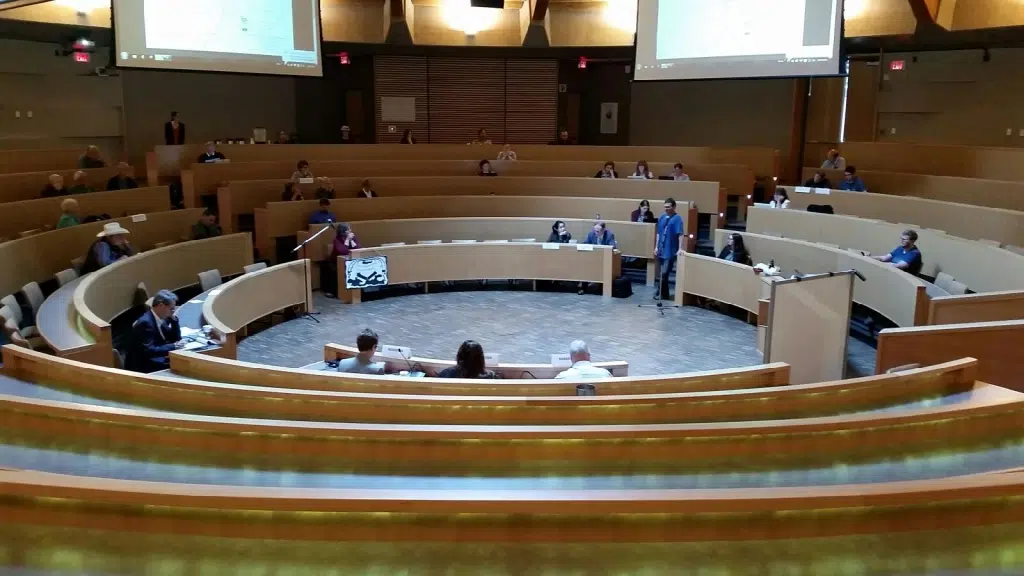
Passionate pipeline discussion begins in Kamloops
KAMLOOPS — Two days of panel discussions regarding the proposed Trans Mountain Pipeline expansion began today, July 19, at Thompson Rivers University.
A three-person ministerial panel is collecting information from community groups and residents who will be directly affected by the path of the pipeline. They will then report their findings to the federal Ministers of Environment and Natural Resources later this year. Kamloops is the first BC community scheduled to take part in these round table discussions.
The discussions are not meant to replace the National Energy Board’s environmental assessment and regulatory review, but aim to determine if any information was missed though that process.


